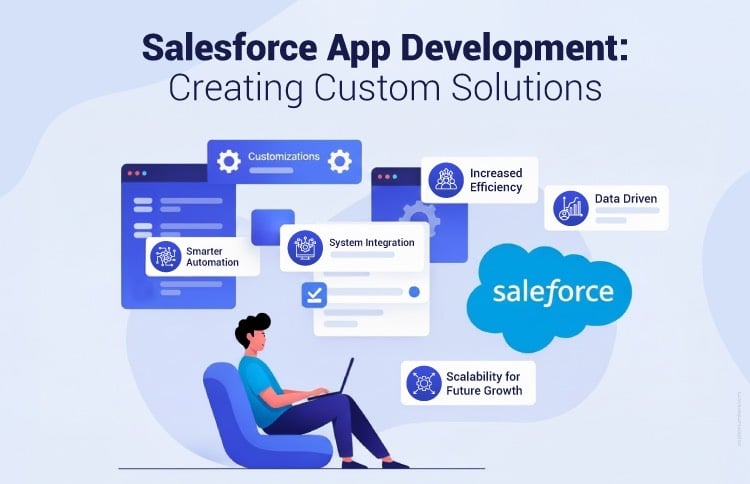Top 5 Ways DevOps Accelerates Digital Transformation
Table of Contents
DevOps is an effective way to keep up with the growing demand from customers for premium quality and the latest advancements in their software. The global DevOps market size reached US$ 8.7 Billion in 2022. IMARC Group expects the market to reach US$ 32.7 Billion by 2028, exhibiting a growth rate (CAGR) of 24.5% from 2023-2028.
Ans it’s no secret that DevOps plays a crucial role in digital transformation. Experts say it’s challenging to have one without the other. How? Well, read on to get the answer.
5 Ways DevOps Contribute to Digital Transformation
1. Ensures Efficiency with Automation
Digital transformation involves culture and technology. DevOps encourages teams to replace repetitive manual tasks with the automation of processes. Automation can save time that one can invest in other crucial tasks. Besides, it reduces the possibility of error.
DevOps promotes more collaboration between teams. Development, security, operations, and other teams learn to collaborate better to deliver high-quality products for their customers.
Technological changes happen at high speed. So, automation and increased collaboration are vital for digital transformation to succeed. Moreover, the cultural changes DevOps brings can increase team efficiency.
2. Reduces Cost
The following are some reasons that increase the cost of software development and make it inefficient –
- Isolation of several project teams and departments
- Repeated rework
- Unnecessary waiting or delays
As mentioned earlier, DevOps brings the development and operation team closer. Thus, it reduces silos and decreases the number of handoffs. As various teams work together, there is more collaboration and understanding and less need to rework. While practicing DevOps, the project teams can immediately make the next piece of instruction available. So, the amount of time spent is reduced.
Speed is a crucial factor in digital transformation. Fast and error-free outcome reduces the need for rework and saves time and money for the organization.
3. Creates New Opportunities
DevOps puts a company in a better position to experiment with innovative ideas. And such an experiment can help companies learn about the pattern and practices that work well, making digital transformation more efficient.
Besides, DevOps can help companies discover new business opportunities enabled by digital transformation. Technology can create new opportunities along with improving processes, and DevOps allows rapid tech adoption.
4. Enhances the Work Quality
Generally, there are greater chances of making errors in a non-DevOps space. This is primarily because of fewer communications between teams. Digital transformation includes processes that minimize error. But DevOps can help a company benefit from such processes.
DevOps promotes a culture of automation. On the other hand, digital transformation enables automation. Using automation can reduce human error, even if not eliminated. So, the overall quality of work has improved.
5. Allows Continuous and Regular Change
Digital transformations are driven by several elements, including the desire to allow the business to acquire, repeat, and move quicker. They look to espouse the cloud and improve their architectures with programs such as microservices.
There is a lot of complexity that gets along with the cloud and with operating microservices. If you don’t have powerful or shared order across development and operations, your odds of success are not good. DevOps principles and practices are the fuel for allowing these types of transformations for most companies.
As client communications and commands from them are frequently digitally enabled, the key enablers of aggressive benefit become:
- The experience for the company to read/interpret feedback from digital interactions fast
- The ability to produce changes depending on this feedback to enhance the product/service
- The pace at which the market can undoubtedly achieve those thoughts and make them out to the market to start reading again.
Essentially, DevOps allows the three bullets above that encourage digital transformation. Often this occurs in openings in large companies, so the capacity to truly change depends on the ability to scale.
How to Start with DevOps?
Beginning DevOps in an existing company can be a complicated process as of the shift in culture and technologies.
To start with, you need to create a culture of shared responsibilities. It means removing silos between operations and development. Each team should better understand what the other does and how they can best help the other team manage its workflow. DevOps culture blurs the line between the developer and operations teams and may eventually eliminate the distinction.
And you need to empower your teams. It means breaking away from companies’ traditional command and control structure and moving toward self-organized, autonomous teams. You should focus on creating a culture of mutual trust.
Besides, failure is viewed as part of the learning process, as opposed to something that requires punishment.
Bottom Line
Digital transformation paired with DevOps allows companies to accelerate, modernize, and adopt improvements in technique and technology. A successful digital transformation involves a cultural shift that results in increased efficiency and reduced timing. And DevOps makes digital transformation faster and reduces waste. Besides, DevOps boosts employee satisfaction and lowers the cost of building a product.
If you want to make your company more agile with digital transformation and DevOps, opt for DevOps consulting services from Capital Numbers. Equipped with a team of talented and enthusiastic developers, we offer unparalleled services at cost-effective prices. To get our services, book a call today!















